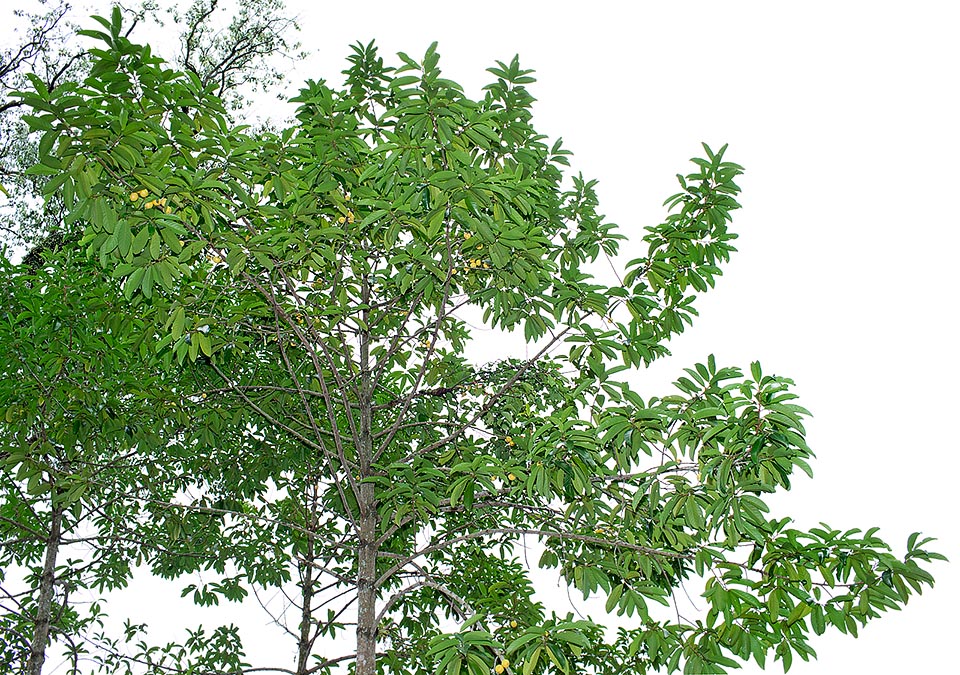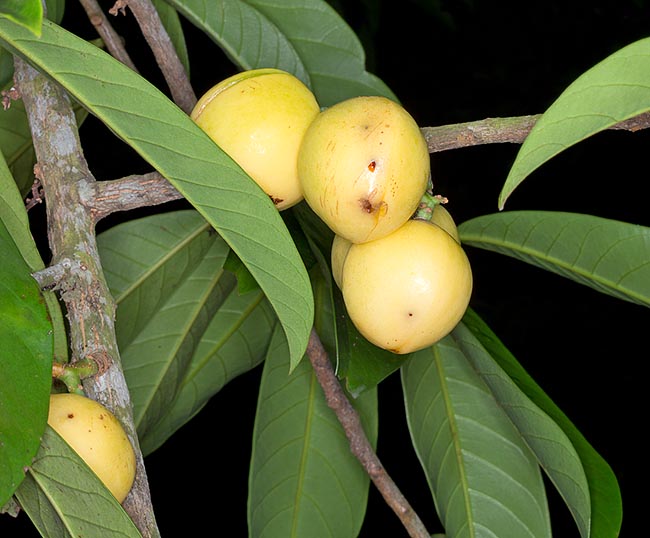Family : Myristicaceae

Text © Pietro Puccio

English translation by Mario Beltramini

Horsfieldia sucosa is a dioecious tree of the humid forests of Borneo, Peninsular Malaysia and Sumatra where reaches 30 m of height © Giuseppe Mazza
The genus is honoured to the American physician and naturalist Thomas Horsfield (1773-1859); the specific name is the Latin adjective “sucosus, a, um” = juicy, with reference to the pulp of the fruit.
Common names: darah-darah, kumpang (Borneo); darahan, merampat, penarah, penarahan pendarahan, (Peninsular Malaysia); darah-darah (Sabah); bindara, binarah, kayo bela (Sarawak).

The fruits, edible but unappetizing, are 2,5-3,5 cm fleshy drupes of 2-2,5 cm of diameter. When ripe they open spontaneously in two halves, like nutmeg, showing the seed protected by an aril © Giuseppe Mazza
The Horsfieldia sucosa Warb. (1897) is a dioecious (every individual carries only either male or female flowers) evergreen tree that may reach the height of 30 m, with a diameter up to 1 m, with greyish bark and sticky reddish sap that exudes from the wounds.
The leaves, on a 1-2 cm long petiole, are simple, alternate, usually distichous, oblong-elliptic to oblanceolate with entire margin and pointed apex, 12-25 cm long and 4-8 cm broad, with prominent nervations below, coriaceous, of glossy dark green colour above, paler and duller below.
Panicle inflorescences under the axil of the leaves, the female ones are 1-2 cm long and carry few globose flowers with 2-3 lobes, rarely 4, of 2-3 mm of diameter, the male ones are 6-15 cm long with several flowers, in groups of 3-7, of the same shape and colour, of 1,5-2 mm of diameter.
The fruits are fleshy ovoid to ellipsoid drupes, 2,5-3,5 cm long and of 2-2,5 cm of diameter, with about 0,4 cm thick pericarp, initially green, then yellowish or pinkish, that open spontaneously in two halves when ripe, containing one seed of the same shape covered by an aril. It reproduces by seed, that is to be interred as soon as possible as its germinability is short lasting, in sandy loam rich of humus maintained humid at the temperature of 24-26 °C.
Species almost unknown out from the origin zones and little cultivated, requires a tropical and humid subtropical climate, an exposition in full sun or a slight shade and soils preferably sandy maintained almost constantly humid. The wood, of discreet quality, is at times utilized for various uses and the fruits, edible but unappetizing, are at times consumed locally.
